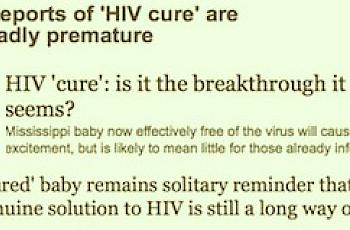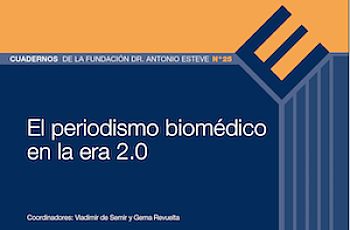
Gary Schwitzer
Publisher

Publisher
Gary Schwitzer has specialized in health care journalism for nearly 50 years. He is founder and publisher of the website HealthNewsReview.org, once leading a team of about 50 people who graded daily health news reporting by major U.S. news organizations, and who also graded health care PR news releases. The project won a Knight-Batten Award for Innovations in Journalism. For nine years he taught health journalism and media ethics at the University of Minnesota. He is now an Adjunct Associate Professor in the university's School of Public Health. Gary worked in television medical news for 15 years – including being in charge of the CNN medical news unit.
The Kaiser Family Foundation published his 2009 report on the state of U.S. health journalism. In 2010, he wrote “Covering Medical Research: A Guide For Reporting on Studies” for members of the Association of Health Care Journalists (AHCJ).
His articles on health journalism have appeared in many different publications, including the Columbia Journalism Review, Nieman Reports, the Poynter.org website, the Journal of the American Medical Association, JAMA Internal Medicine, BMJ, PLoS Medicine, and the newsletters and websites of the Association of Health Care Journalists and of the American Society of News Editors.
He has led health journalism workshops at 10 consecutive AHCJ national conferences, at the NIH Medicine in the Media series, at the MIT Medical Evidence boot camps, and internationally for National Cancer Institute (NCI) workshops in Rio de Janeiro, Guadalajara, San Juan, Beijing, and in New Delhi and Mumbai, India.
He gave a keynote address at the International Shared Decision Making conference in Lima, Peru in 2013 and delivered a plenary address at the National Medicines Symposium in Brisbane, Australia in 2014.
In 2014, he was named one of 25 Champions of Shared Decision Making by the Informed Medical Decisions Foundation. Also in 2014, the American Medical Writers Association honored him with the McGovern Award for preeminent contributions to medical communication. In 2016, Rodale, Inc. named him to its inaugural “Rodale 100″ list of “innovators who are changing the face of the health and wellness universe.”

Even when stories get the facts right, they often fail to provide crucial context and caveats that would help audiences make sense of the news — or lack thereof.

Between recent reports of industry-funded research and industry-funded journalism workshops, it feels like a sophisticated campaign by the alcohol industry to sway public opinion is underway, writes HNR's Gary Schwitzer.

"I don’t think we talk often enough about why it matters if health care industry entities are allowed to advertise within, or sponsor, health care journalism content," writes HealthNewsReview's Gary Schwitzer.

The ACA has become a scapegoat in the media for all kinds of health care woes. "Somebody needs to be the referee on some of the cheap shots flying around on an uneven playing field," says Health News Review's Gary Schwitzer.

The harm from misleading media messages about health care is very real. But by putting a human face and voice to these harms, we can begin to correct some of these wrongs, explains HealthNewsReview.org's Gary Schwitzer.

An editor for the BMJ blogged about "How medical journals can help stop disease-mongering." And one of her ideas was a quarantine for "groundbreaking studies about new treatments."
“Between the Lines: Finding the Truth in Medical Literature,” by Marya Zilberberg, MD, MPH, and “The Patient Paradox: Why sexed-up medicine is bad for your health,” by Margaret McCartney, MD, are two books to add your reading list.

The top trending health news story so far this week is that of the Mississippi baby pronounced “functionally cured” of HIV infection.

The Federation of Journalists in Spain reports 4,000 layoffs and 70 news organization closures in 2012 alone. Cutbacks have affected biomedical journalists. Read some international perspectives from Spain, Germany, the UK and the US.
Some problems can arise when journalists report on their own health care. But first-person health care stories, when done right, can deliver a valuable public service.